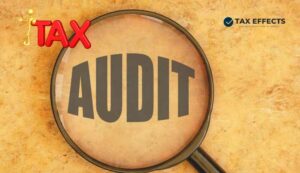In this article, we will discuss about the summary of Taxation Rules in case of Shares Trading or held as Investment as per Income tax act:
Intraday Trading:
1. Tax Treatment – Intraday trading objective is to earn income or profit from fluctuation in prices of stocks, income from intraday trading is treated as either speculation gain or loss, which comes under the head of business income. It is considered speculative as trading is done without the intention of taking delivery of the contract.
2. Turnover – Turnover of Equity Intraday Trading = Absolute Profit (Absolute profit means the sum of positive and negative differences from trades)
3. Taxability – Income from intraday trading is added to the total income for the financial year and consequently is charged at the prescribed tax slab rates.
4. Treatment of loss – The loss from intraday trades can be carried forward for 4 years. It can only be set-off against Speculative Business Income.
Future & Option Trading:
1.. Tax Treatment – Transactions that take place in futures & options trading are considered as non-speculative business transactions. i.e., profits obtained from F&O trading are taxed in the same way as profits obtained from any other business transaction. This also implies that taxpayers can claim expenses such as electricity, telephone, internet etc. from earnings of the business.
2. Turnover – Turnover of Futures = Absolute Profit
Turnover of Options = Absolute Profit
Absolute profit means the sum of positive & negative differences from trades.
3. Taxability – Income from futures and options is added to the total income for the financial year and consequently is charged at the prescribed tax slab rates.
4. Treatment of loss – Loss from futures and options trading can be adjusted from income from remaining heads such as rental income or interest income (cannot be adjusted from salary income) in the same financial year. Any unadjusted loss can be carried forward for 8 years. However, in the future, they can only be adjusted from non-speculative income.
Equity Dividends:
1. Tax Treatment – If shares are held for trading purpose, then the dividend income shall be taxable under the head income from business or profession. Whereas, if shares are held as an investment, then income arising in nature of dividend shall be taxable under the head other sources.
2. Taxability – 10% TDS is deducted on dividend income paid in excess of Rs 5,000 from a company or mutual fund. The dividend received is taxable as per the prescribed tax slabs under the head Income from Other Sources.
3. Deductions – Where dividend is assessable to tax as business income, deductions of all those expenditures which have been incurred to earn that dividend income such as collection charges, interest on loan etc. can be claimed.
Whereas if dividend is taxable under the head other sources, deduction of only interest expenditure which has been incurred to earn that dividend income to the extent of 20% of total dividend income can be claimed.
Short Term Trades:
1. Tax treatment – If equity shares are sold within 12 months of purchase, the seller may make short term capital gain or incur short-term capital loss.
Taxpayers have been offered a choice of how they want to treat such income. Tax payers can treat gains or losses from the sale of shares as ‘income from business”, or ‘Capital gains’. However, once chosen, they must continue the same method in subsequent years.
2. Taxability – When the sale of shares is treated as business income, one is allowed to reduce expenses incurred in earning such business income. In such cases, the profits would be added to the total income for the financial year and consequently will be charged at the tax slab rates.
When the sale of shares is treated as capital gains, the gains are taxable @ 15% plus Surcharge (if applicable) plus 4% Cess u/s 111A, irrespective of the applicable tax slab. Expenses incurred on transfer are deductible.
3. Deductions – No deductions under section 80C to 80U are allowed from STCG.
4. Treatment of loss – Any STCL can be set off against STCG or LTCG from any capital asset. If the loss is not set off entirely, it can be carried forward for a period of 8 years and adjusted only against any STCG or LTCG made during these 8 years.
Long Term Trades:
1. Tax treatment – If equity shares listed on a stock exchange are sold after 12 months of purchase, the seller may make long-term capital gain (LTCG) or incur long-term capital loss (LTCL).
2. Taxability – LTCG is taxed at concessional rate of 10% plus Surcharge (if applicable) plus 4% Cess for the gains exceeding Rs. 1 Lakh u/s 112A without indexation benefit. Here, the Grandfathering Value concept will apply to give higher exemption, if shares or mutual fund is purchased before February 1, 2018.
3. Deductions – No deductions under section 80C to 80U are allowed from LTCG.
4. Treatment of loss – Any LTCL can be set off against LTCG only. If the loss is not set off entirely, it can be carried forward for a period of 8 years and adjusted only against LTCG.
Debt Mutual Funds (MF):
1. Tax treatment – Debt MF are those funds whose portfolio’s debt exposure is in excess of 65%. STCG realized on redeeming debt MF units within a holding period of 3 years. LTCG realised on selling units of a debt MF after a holding period of 3 years.
2. Taxability – STCG are added to the overall income and taxed at the income tax slab rate.
LTCG are taxed at a flat rate of 20% with indexation benefit plus Surcharge (if applicable) plus 4% Cess.
3. Treatment of loss – STCL can be set off against both STCG or LTCG. LTCL can be set off against LTCG only. If the loss is not set off entirely, It can be carried forward for a period of 8 year.
Rules regarding Carry Forward & Set Off of Losses:
A). Losses from Regular Business (other than Speculative Business & Specified Business u/s 35AD)
- Cannot be carried forward the loss if the return is not filed within the original due date as specified u/s 139(1)
- Not necessary to continue the business at the time of set off in future years
- Can be adjusted only against business income
- Can be carry forward up to next 8 A.Y. from the assessment year in which the loss was incurred
B). Speculative Business loss
- Cannot be carried forward the loss if the return is not filed within the original due date as specified u/s 139(1)
- Can be carry forward up to next 4 A.Y. from the assessment year in which the loss was incurred
- Can be adjusted only against Income from speculative business
- Not necessary to continue the business at the time of set off in future years
C). Specified Business loss under section 35AD
- Cannot be carried forward the loss if the return is not filed within the original due date as specified u/s 139(1)
- No time limit to carry forward the losses from specified business u/s 35AD
- Can be adjusted only against Income from specified business u/s 35AD
- Not necessary to continue the business at the time of set off in future years
D). Capital Losses:
- Cannot be carried forward the loss if the return is not filed within the original due date as specified u/s 139(1)
- Can be carry forward up to next 8 A.Y. from the assessment year in which the loss was incurred
- The order of adjusting STCL & LTCL is not prescribed in the income tax act. Hence, STCL & LTCL are first to be adjusted against that Capital Gain which has the highest tax rate.
Happy Reading.
Disclaimer: The information contained in this website is provided for informational purposes only, and should not be construed as legal/official advice on any matter. All the instructions, references, content, or documents are for educational purposes only and do not constitute legal advice. We do not accept any liabilities whatsoever for any losses caused directly or indirectly by the use/reliance of any information contained in this article or for any conclusion of the information.









